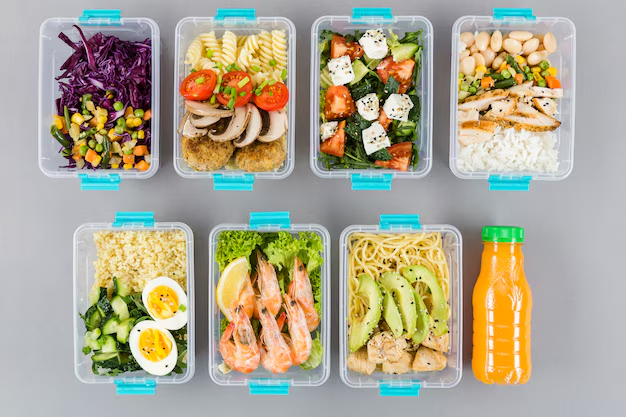Smart Food Storage: How Long Can Cooked Vegetables Last in Your Refrigerator?
Cooking a delicious meal filled with vibrant vegetables is not only satisfying but also a great way to incorporate essential nutrients into your diet. However, when it comes to leftovers, it’s important to consider how long they can last in your refrigerator. Cooked vegetables often leave us with the question: how long can they be safely stored?
In this guide, we’ll explore the ins and outs of storing cooked vegetables, including best practices and tips to ensure they remain fresh for as long as possible. Let’s dive into the world of food storage and shelf life to keep your culinary creations safe and tasty!
Understanding the Shelf Life of Cooked Vegetables
Storage Basics: Factors Impacting Shelf Life
When determining how long cooked vegetables can be stored, several factors come into play:
- Type of Vegetable: Some vegetables have longer shelf lives than others. For example, root vegetables like potatoes and carrots tend to last longer compared to leafy greens.
- Storage Conditions: Proper refrigeration is key. The temperature should be consistently below 40°F (4°C) to prevent the growth of harmful bacteria.
- Preparation Method: Cooking methods such as steaming or roasting might impact the moisture content, affecting how long vegetables can safely be stored.
General Guidelines for Refrigerated Cooked Vegetables
Most cooked vegetables can be stored in the refrigerator for 3 to 5 days. This time frame allows for safe consumption while maintaining flavor and nutritional value. Beyond this period, the risk of spoilage and bacterial growth increases, making it unsafe to consume.
Exceptions and Special Cases
While the 3 to 5-day rule holds true for most vegetables, certain types have unique considerations:
- Sautéed or Grilled Vegetables: These should be consumed within 1 to 2 days due to potential moisture loss and changes in texture.
- Mashed or Blended Vegetables: Items like mashed potatoes or pureed vegetables may have a slightly shorter shelf life due to a higher moisture content, lasting around 3 days.
Tips for Maximizing Freshness and Safety
Proper Storage Techniques
To ensure your cooked vegetables remain safe to eat, follow these storage techniques:
- Airtight Containers: Store leftovers in airtight containers to limit exposure to air and slow down spoilage.
- Labeling: Clearly label containers with the date of storage to track freshness and avoid confusion.
Quick Cool Down
Before placing cooked vegetables in the refrigerator, allow them to cool to room temperature. This prevents raising the internal temperature of your fridge, which can promote bacterial growth.
Consistent Temperature
Ensure your refrigerator maintains a consistent temperature by using a fridge thermometer. A stable environment helps prolong the life of your stored vegetables.
Related Subtopics: Extending Shelf Life and Avoiding Waste
Freezing as an Alternative
If you anticipate that you won’t consume your cooked vegetables within the recommended time frame, consider freezing them. Freezing vegetables can extend their shelf life significantly, often up to 8–12 months, depending on the vegetable type and how they were prepared.
- Blanch Before Freezing: Quick blanching before freezing can help maintain texture and nutritional value.
- Label with Dates: Always label frozen packages with the date so you know how long they’ve been stored.
Reimagining Leftovers
Transforming your leftovers into new dishes can help prevent waste:
- Stir Fry: Toss leftover veggies into a stir fry for a quick second meal.
- Vegetable Soup: Use them as a base for a hearty soup or stew.
- Baked Goods: Incorporate them into vegetable muffins or bread for a nutritious treat.
Signs Your Cooked Vegetables Have Spoiled
Knowing how to identify spoiled vegetables ensures you avoid consuming unsafe food. Look out for these signs:
- Off Odors: A sour or rancid smell indicates spoilage.
- Changes in Texture: Sliminess or mushiness often means the vegetable has gone bad.
- Mold or Fungal Growth: Visible mold is a clear sign that the food should be discarded.
⚠️ Always trust your senses! If something doesn’t look, smell, or feel right, it's best to throw it out.
Special Considerations: Different Vegetables, Different Rules
High-Moisture Vegetables
Vegetables like zucchini or tomatoes, which have high water content, may spoil faster due to their quick breakdown process. Ensuring these are dry before storing can help extend their life.
Starch-Based Vegetables
Potatoes or sweet potatoes, when cooked, can last slightly longer than their green counterparts. However, ensure that they are not exposed to air, as this can lead to discoloration and spoilage.
Insights: The Impact of Preparation Methods
Different cooking techniques can impact the shelf life of vegetables:
- Steaming and Boiling: Often leaves vegetables with a higher moisture content, which may decrease shelf life.
- Roasting and Grilling: These methods tend to reduce moisture, potentially extending shelf life slightly but can also alter texture when refrigerated.
Quick Reference Summary: Storing Cooked Vegetables 📝
| Vegetables Type | Refrigeration Time | Freezer Time |
|---|---|---|
| General Vegetables | 3–5 days | 8–12 months* (blanch if possible) |
| Sautéed, Grilled | 1–2 days | Up to 6 months |
| Mashed/Pureed | Up to 3 days | 3 months |
*Note: Always blanch high-water vegetables before freezing for best results.
Closing Insight
Safely storing cooked vegetables is not just about avoiding waste but also about maintaining the integrity and nutritional value of your meals. By following the guidelines detailed above, you can enjoy tasty and safe leftovers without worry. Understanding the nuances of food storage will empower you in your journey towards more efficient and responsible kitchen practices, ensuring you make the most of your culinary efforts. Keep these tips in mind, and you'll be set for storing your cooked vegetables with confidence! 🥦🥕

